Crop Management
All Crop Management Content
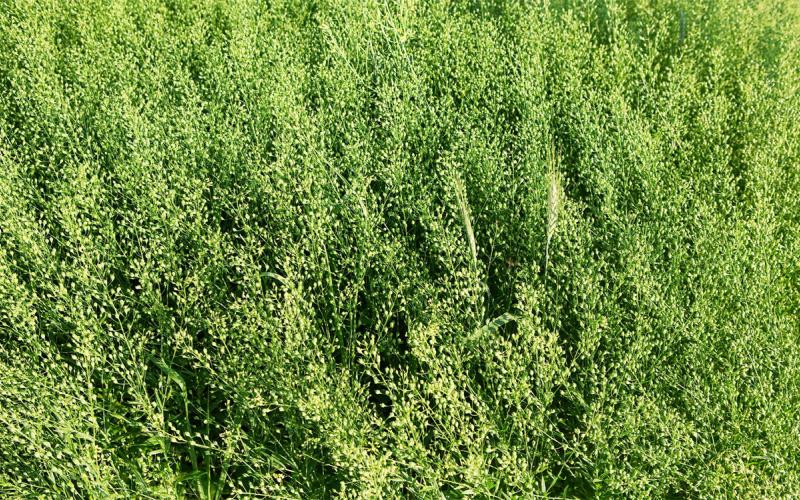
Spring and Winter Camelina in South Dakota
In the semi-arid, western portion of South Dakota, camelina has potential value as a fall-seeded cover crop, providing flexibility in crop rotations for improving soil health.
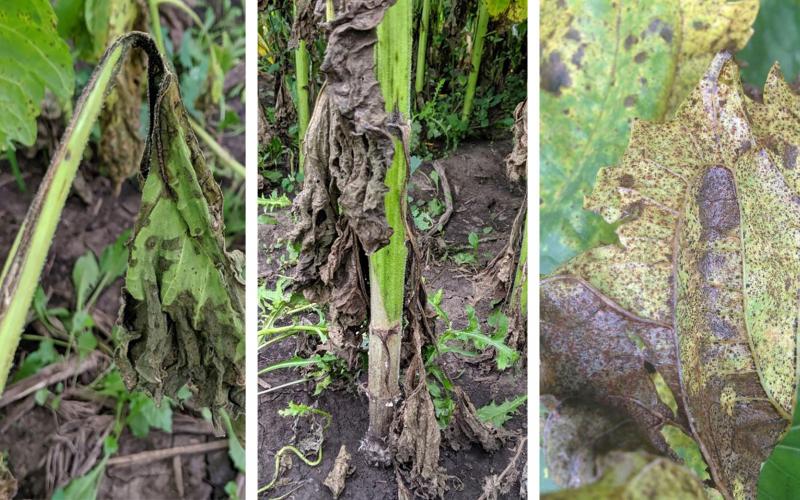
Bacterial Stem Rot, Sclerotinia Basal Rot and Sunflower Rust Developing in Sunflower
Sunflower scouted this week in Brookings and Kingsbury counties were found with bacterial stem rot, Sclerotinia basal rot and sunflower rust. This area has had plenty of moisture, which favors several diseases to develop in sunflower.
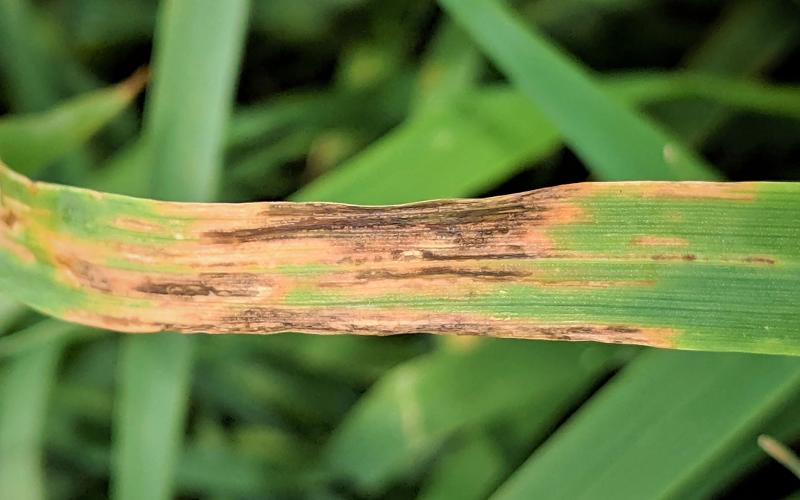
Bacterial Blight Developing in Oats
Oats scouted in a few fields in the Eastern and South Central parts of the state were found with bacterial blight developing on the lower leaves. Plants infected have leaves with water-soaked brown longitudinal lesions in the top-half of the leaf. Severe symptoms can lead to premature leaf death.

2018 Field Plot Summaries for Oat and Sorghum Foliar Disease Management Trials
An oat crown rust integrated management trial and a sorghum foliar fungicide trials were conducted to determine the efficacy of fungicides to manage crown rust and fungal diseases in oat and sorghum respectively. Crown rust is one of the most devastating diseases of oat in the state. Stragego fungicide was applied at three different timings to determine the most effective timing for crown rust management. For sorghum, the study investigated the efficacy of two different rates of Nexicor for managing sorghum foliar diseases. The oat field experiment was maintained at Northeast Research Farm (NERF), Southeast research farm (SERF) and Volga research farm. The sorghum experiment was at Volga.
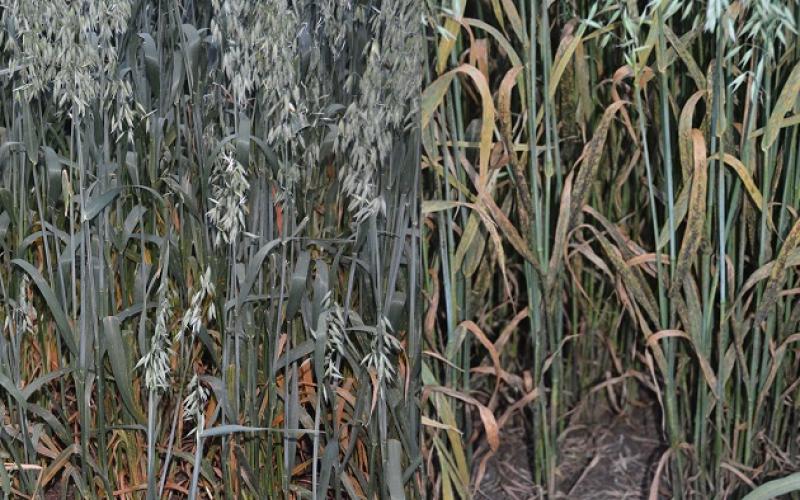
Utilize a Fungicide For Crown Rust Prevention in Oats
If you are growing oats this year for grain, be sure to scout and plan a fungicide application to protect the oats from crown rust.
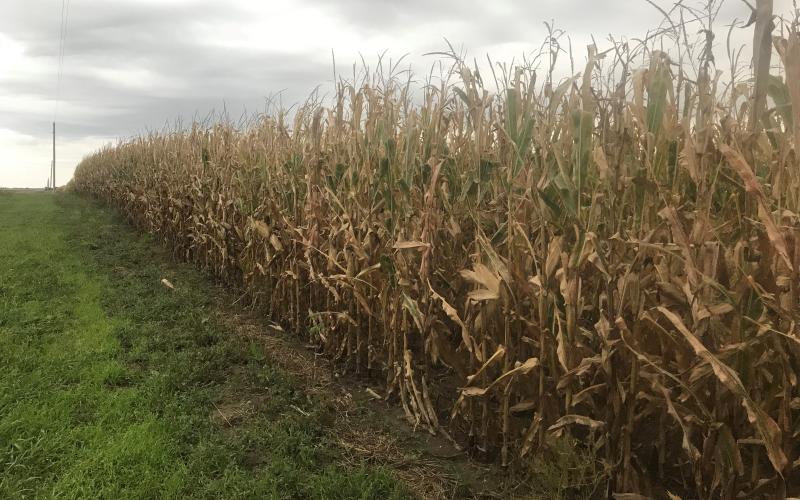
SDSU Extension to Kick Off Crop Hour Webinar Series in January
January 10, 2022
SDSU Extension will, once again, deliver a series of virtual Crop Hour webinars this winter. Starting Jan. 11, every Tuesday through Thursday from 10:00 a.m.-11:00 a.m. CST, participants are invited to take their coffee break online to hear the latest in crop management and agronomic research from SDSU Extension.

Creating Management Zones Using Electrical Conductivity
The first step to practicing zone management is to identify the variations that control yield. There are various methods for characterizing soil variations within a field, and among them, electrical conductivity measurement is one of the most-reliable.
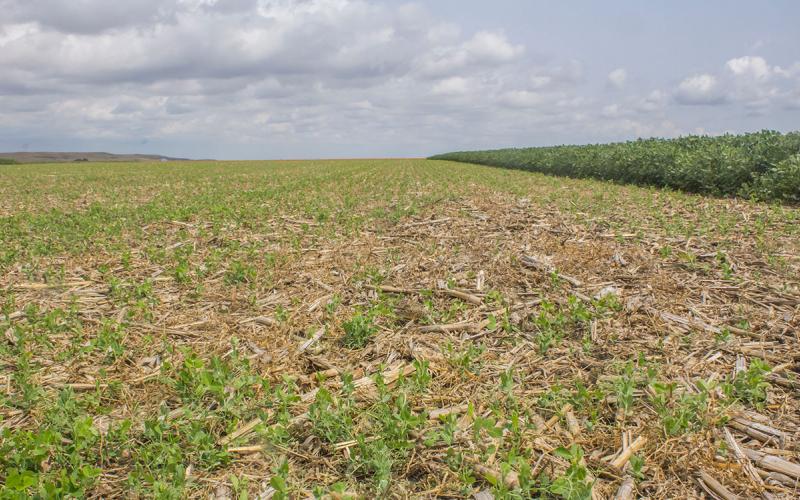
Midwest Cover Crops Council Releases Third Edition Cover Crops Field Guide
November 29, 2021
Cover crops are used to slow erosion, improve soil health and capture nutrients. From planting to termination, growers face many production decisions, however.
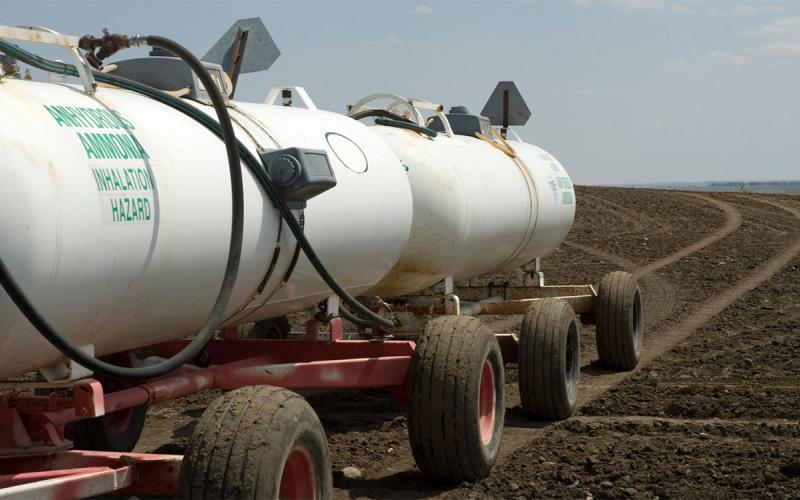
Determining an Economically Optimal Nitrogen Rate for Corn in 2022
While we can't know what the prices of corn and nitrogen fertilizer will be next year, it is very important to understand how the level of both prices will influence corn profitability for 2022.
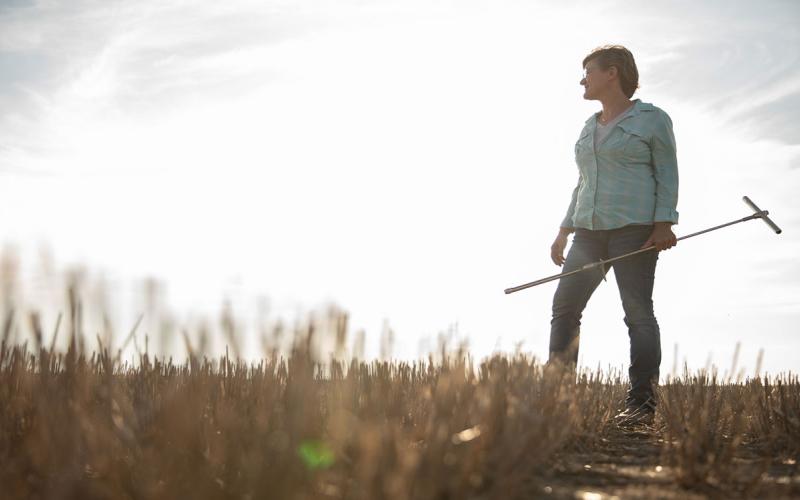
Fall Soil Sampling
With fertilizer prices on the rise, it’s more important than ever to understand your soil test levels and crop response to applied fertilizers. Fall is a great time to soil sample before freeze up.